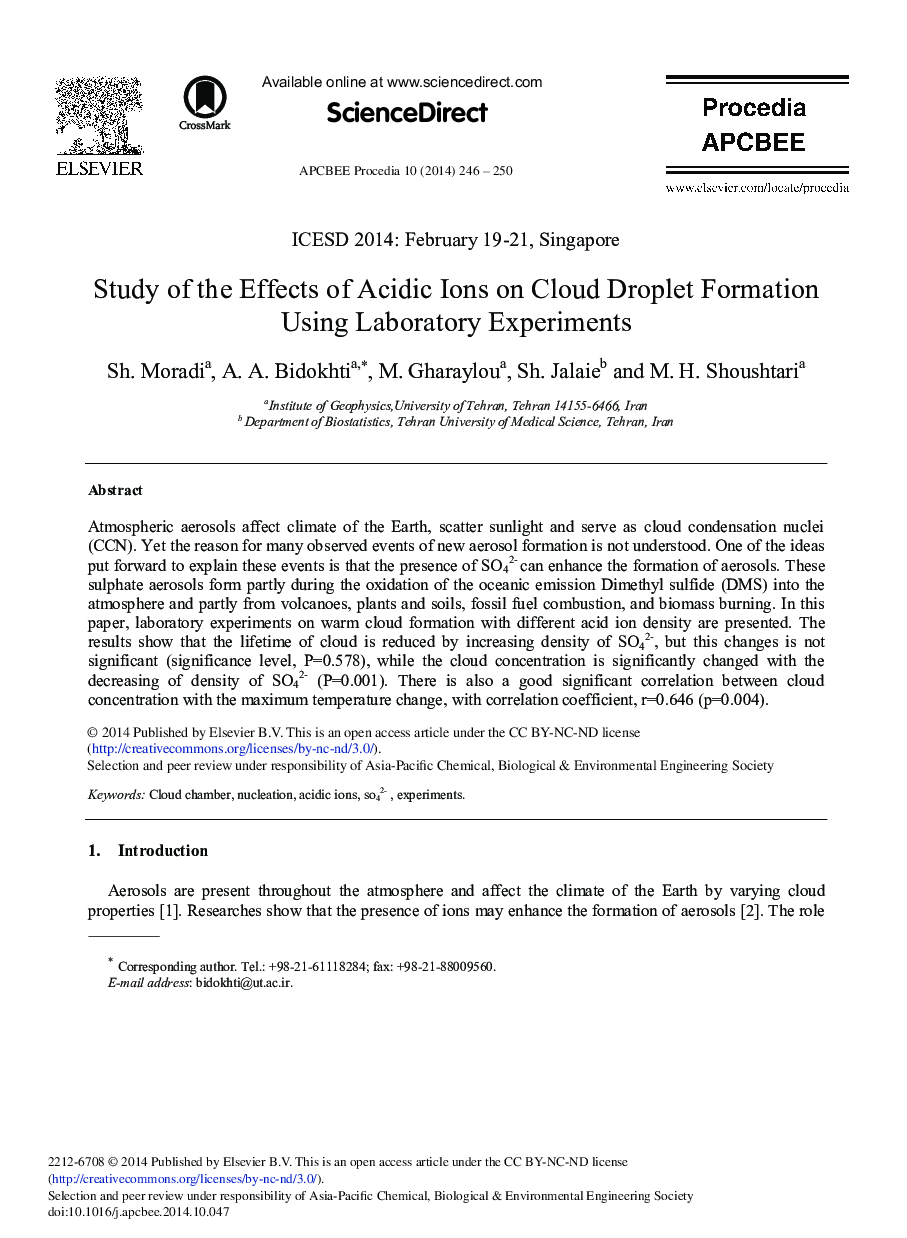| Article ID | Journal | Published Year | Pages | File Type |
|---|---|---|---|---|
| 676210 | APCBEE Procedia | 2014 | 5 Pages |
Atmospheric aerosols affect climate of the Earth, scatter sunlight and serve as cloud condensation nuclei (CCN). Yet the reason for many observed events of new aerosol formation is not understood. One of the ideas put forward to explain these events is that the presence of SO42- can enhance the formation of aerosols. These sulphate aerosols form partly during the oxidation of the oceanic emission Dimethyl sulfide (DMS) into the atmosphere and partly from volcanoes, plants and soils, fossil fuel combustion, and biomass burning. In this paper, laboratory experiments on warm cloud formation with different acid ion density are presented. The results show that the lifetime of cloud is reduced by increasing density of SO42-, but this changes is not significant (significance level, P=0.578), while the cloud concentration is significantly changed with the decreasing of density of SO42- (P=0.001). There is also a good significant correlation between cloud concentration with the maximum temperature change, with correlation coefficient, r=0.646 (p=0.004).
